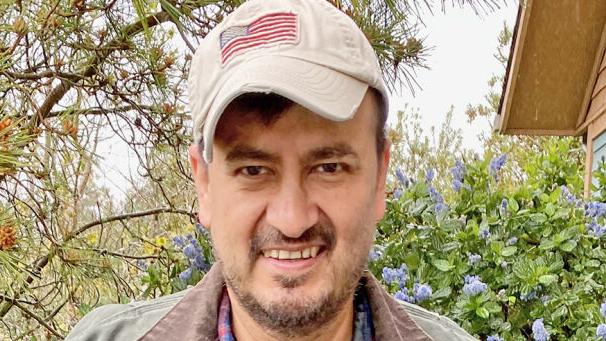
Demographic shifts
Most all of the developing world is experiencing a drop in births. A recent New York Times article outlines the dimensions of the demographic shift: “All over the world, countries are confronting population stagnation and a fertility bust, a dizzying reversal unmatched in recorded history that will make empty homes a common eyesore. Maternity wards are already shutting down in Italy. Ghost cities are appearing in northeastern China. Universities in South Korea can’t find enough students, and in Germany, hundreds of thousands of properties have been razed, with the land turned into parks.”
If you’re interested in real estate trends, as I am, you may have already noticed various announcements from small towns in Italy or Greece indicating they’ll pay you to buy a property and move to their towns. (There are stipulations and time-frames required for renovations, but prices for homes as low as $1!) I started seeing these offers even before the pandemic shutdown, but covid has exacerbated the trends.
The one-child policy in China is a perfect example of the short-sightedness of us humans. Unfortunately that has meant many couples who wanted boys either quietly hid their baby girls or the government sent them to orphanages. (A Vanity Fair article indicates that since 1991, American families adopted more than 60,000 Chinese babies, almost all of them girls.) Now China has one of the world’s most unbalanced sex ratios and faces a generation of bachelors who will likely be unable to find wives.
Americans too are having fewer babies; there are new birthrate lows for the second consecutive year. The dip in baby-making in the U.S. (younger folks note child care expenses, wanting more free time, worry about economics and climate change as the top reasons) means that the next generation will be smaller than the one before, resulting in shifting political coalitions and fewer people working to support an aging population.
‘Be best’
As an environmentalist I can’t help but think that the way we live — both environmentally, economically, and socially — is slowing our population in the same way that wild creatures produce fewer babies when resource pressures increase. A downward slide like this is difficult to turn around.
Typically America has been bolstered over the decades by wave after wave of immigrants — Italian, Irish, Asian, and now Central and South American. It’s well documented that immigrants are hard workers and incredibly motivated to start small businesses; though I don’t mean to say that it’s only for economic reasons that we need our immigrant neighbors.
American is known for being a “melting pot;” and our rich broth of different cultures and traditions has provided us with amazing resilience, innovation, and creativity. Our land of opportunity has attracted some of the best minds and most creative spirits on the planet. So I’m baffled about why now — when we need immigrant energy more than ever — we want to tighten our borders to people who need to escape lethal regimes; people who simply want a chance to become their best selves. Let me tell you a story about one of these people.
Mario’s story
The ICE case for deporting Mario Alberto Rodriguez Casillas has been going on for several years. Anyone who knows Mario, or simply speaks to him for a few moments, becomes instantly aware of all his positive qualities: his intelligence, authenticity, kind heart, and his abiding earnestness to pursue a life in the United States where he is free to be himself.
Mario has family on the Peninsula and over a decade ago visited and quite quickly found work teaching ESL, Spanish, and information technology at both the Ilwaco high school and the community college. But, as he tells me, “2010 was the year my visa expired and I became undocumented.” He stayed on, why? “I am gay and it is very very hard in the Latin culture to be gay, it’s a very macho country. It’s not easy for me to talk about that. When I talked to an ICE lawyer I answered the best I can. But it’s hard for me to say that, I have to expose my private life.”
Mario was arrested on the Peninsula and sent to Portland, then transferred to the detention center in Tacoma. Although no one knows exactly how he was found, the irony is that the immigrants who have been in our community the longest — some for 20 years or more, who have bought a home or a car, taken out a loan, paid their water or utility bills, have a job, etc. — are the easiest for ICE to arrest. These are the same people who are the most integrated into our community.
A long exposé in the New York Times indicated that it was our state’s robust high-tech data systems that allowed ICE to more easily arrest people (tinyurl.com/2znerwdy — Mario’s story is featured in this article). One piece of data could tie an ICE agent into a person’s entire life: address, phone number, children and their school district, spouse, license plate. Often agents grabbed individuals while picking their kids up from school.
Once arrested, the nearly $8,000 that Mario had been saving for his continued college education had to go for his initial ICE hearing and a bond that allowed him to come back home to the Peninsula while he was awaiting his hearing. Ultimately the court ruled that since he could work in Mexico, he needed to be returned. But as Mario said, “The judge denied my case and said I can work in Mexico. But it’s not about work. It’s about myself — who I am.” Mario has found another lawyer and has applied for an appeal to the ninth circuit court in San Francisco. His case was resubmitted at the beginning of 2021; results could take a year.
In the meantime, the irony is that Mario has become a central figure in helping the Hispanic community here. As Ann Reeves, board president of Pacific County Immigrant Support (PCIS info: www.pcisupport.org), says, “Mario is teaching Spanish and teaching English to Spanish speakers. He’s helping people prepare for their citizenship tests. People come to him for help with all sorts of questions.” He’s a valued community citizen who has a simple dream — to live a happy life on the Peninsula and be able to keep teaching.
Our immigrant workers support us!
During the pandemic, PCIS has raised money to provide financial support for Hispanic households in our county: they’ve helped over 276 adults between the ages of 40 — 70. Over 57 percent of these folks work in the shellfish industry;19 percent work in the fields of agriculture, housekeeping, and the restaurant industry. 12.8 percent of adults have reported that they were unemployed during the pandemic shut-down. (For the complete report and/or to donate for PCIS: tinyurl.com/33aadr6w).
As many business owners know, finding, training, and keeping qualified staff is one of the most difficult aspects of running a commercial enterprise at the beach. Staffing these tourist-heavy employment areas — shellfish, agriculture, housekeeping, food service — are critical to the well-being of everyone on the Peninsula. We need the help of our immigrant workers to get the Peninsula back to business post-pandemic. But it’s a two way street: let’s support them as they support us.
Mario is just the kind of neighbor and community citizen I’d love to have: a smart, kind, empathetic young man who’s ready to help in any situation. Why would we want to ship him back to Mexico where he’ll be beaten up and undervalued? I hope America can continue to welcome people like Mario with open arms.








